Manufacturer vs. Third-Party: Which Extended Warranty is Right for Your Out-of-Warranty BMW?
Understanding Extended Warranties: Your BMW's Future Security
An extended warranty, often referred to as a vehicle service contract or a vehicle protection plan, is essentially an insurance policy against unexpected mechanical breakdowns. For BMW owners, this protection is particularly valuable. BMWs, while engineered for performance and durability, feature complex systems and advanced technology that can be expensive to repair when things go wrong. From intricate electronic modules to high-performance engine components, the labor and parts costs can quickly add up, turning a minor issue into a major financial burden.
The factory warranty on a new BMW typically covers 4 years or 50,000 miles, whichever comes first. Once this coverage expires, you're solely responsible for all repair costs. This is where an extended warranty steps in, providing coverage for many of the same components that were protected under the original factory warranty. It’s designed to shield you from the financial shock of unforeseen repairs, allowing you to continue enjoying your BMW without constant worry about potential breakdowns. Deciding whether to opt for a manufacturer or third-party plan depends on several factors we'll explore.
The Manufacturer's Choice: BMW Extended Vehicle Protection
When you opt for a manufacturer-backed extended warranty, such as the BMW Extended Vehicle Protection plan, you're getting coverage directly from the source. These plans are specifically designed by BMW for their vehicles, meaning the coverage is usually a perfect fit for your car's unique engineering. There are several compelling advantages to choosing this route for your out-of-warranty BMW.
Firstly, coverage is typically honored at any authorized BMW dealership, ensuring that genuine BMW parts are used and repairs are performed by BMW certified technicians. This consistency in service quality can provide immense peace of mind, knowing your vehicle is in expert hands trained specifically on your model. The claims process is often seamless, with dealerships handling the paperwork directly with BMW, minimizing hassle for you. Furthermore, a BMW extended vehicle protection plan can sometimes enhance your vehicle's resale value, as the coverage is often transferable to a new owner, signaling a well-maintained and protected vehicle.
However, these premium benefits often come at a premium price. Manufacturer warranties are generally more expensive than their third-party counterparts. They also tend to have stricter eligibility requirements regarding your BMW's age and mileage, and may offer less flexibility in terms of coverage tiers or customization. While robust, the coverage might be less adaptable to individual needs or budgets.
Venturing Beyond: Third-Party Extended Warranty Providers
For many BMW owners seeking a balance between comprehensive protection and cost-effectiveness, third-party extended warranty providers present an attractive alternative. These companies specialize in offering vehicle service contracts for a wide range of makes and models, including BMWs, and often come with a different set of advantages and considerations.
A major draw of aftermarket warranty BMW plans is their affordability. Premiums are frequently lower than manufacturer plans, making extended protection accessible to a broader range of budgets. Third-party providers also typically offer greater flexibility in terms of coverage levels, allowing you to choose from basic powertrain protection to comprehensive bumper-to-bumper plans. This customization means you can tailor the plan to your specific concerns and budget. Another significant benefit is the freedom to choose your repair shop. You're not restricted to BMW dealerships; you can often take your car to any ASE-certified mechanic, which can be convenient if you have a trusted independent shop.
However, thorough research is paramount when considering a third-party provider. The industry has a mixed reputation, with some highly reputable companies and others that are less so. You'll need to carefully review the contract for warranty exclusions, warranty deductible amounts, and the claims process, which can sometimes be more involved, requiring pre-authorization before repairs begin. While many provide excellent service, it's crucial to read extended warranty reviews and understand the provider's financial stability and customer service reputation before committing.
Key Factors to Consider Before Deciding
Choosing the right BMW extended warranty requires a careful evaluation of several factors unique to your situation. There's no one-size-fits-all answer, so consider these points diligently:
- Your BMW's Age and Mileage: The older your BMW and the higher its mileage, the more limited your options might become, especially with manufacturer plans. Third-party providers often offer more flexibility for higher-mileage vehicles.
- Your Budget: Determine how much you're willing to spend on an extended warranty cost. Manufacturer plans are usually pricier but offer potentially fewer headaches. Third-party plans can be more budget-friendly but demand more due diligence.
- Coverage Level Desired: Do you need comprehensive bumper-to-bumper protection or are you primarily concerned with major powertrain components? Compare the specific components covered and excluded by each plan. Don't assume similar names mean identical coverage.
- Repair Shop Preference: Are you committed to using BMW dealership warranty service, or do you prefer the flexibility of an independent repair shop? This is a significant differentiator between manufacturer and many third-party plans.
- Claims Process: Research how easy or difficult it is to file a claim. Manufacturer plans often have a more straightforward process, while some third-party plans might require more steps, like pre-authorization.
- Provider Reputation: For third-party options, investigate the company's track record, customer service ratings, and financial stability. Look for independent reviews and consumer reports to gauge reliability.
- Deductibles and Exclusions: Always read the fine print. Understand the warranty deductible – per visit or per repair? Also, be clear about what’s explicitly NOT covered, as these warranty exclusions can be critical.
- Transferability: If you plan to sell your BMW, a transferable warranty can be a significant selling point, potentially increasing your vehicle's resale value. Confirm if the warranty is transferable and if there's a fee involved.
- Additional Benefits: Many plans, especially third-party ones, offer perks like roadside assistance, rental car reimbursement, and trip interruption coverage. These can add value and convenience.
By carefully evaluating these points, you can conduct a robust BMW warranty comparison and make an informed decision that truly protects your ultimate driving machine.
Making the Smart Choice for Your BMW
Ultimately, the 'right' extended warranty for your out-of-warranty BMW is a deeply personal decision. It hinges on your financial comfort with potential BMW repair costs, your risk tolerance, and your preferences for service and convenience. If budget is less of a concern and you value the absolute assurance of manufacturer-backed quality and seamless dealership experiences, a BMW Extended Vehicle Protection plan might be your ideal choice.
However, if you're looking for more flexibility, potentially lower premiums, and are comfortable with the due diligence required to vet a reputable provider, a third-party vehicle protection plan could be an excellent fit. Many third-party plans offer robust coverage that competes directly with manufacturer options, often at a more attractive price point. The key is not to rush the decision. Get quotes from both manufacturer and several highly-rated third-party providers. Compare the plans side-by-side, paying close attention to the details of coverage, deductibles, and exclusions.
Protecting your BMW with an extended warranty isn't just about avoiding large repair bills; it's about safeguarding your investment and ensuring you continue to enjoy the unrivaled driving experience for years to come without financial stress. Whether you choose a BMW-backed plan or a carefully selected third-party option, the peace of mind an extended warranty offers is invaluable.
Conclusion
Navigating the world of extended warranties for your out-of-warranty BMW doesn't have to be a bumpy ride. Both manufacturer and third-party options offer distinct advantages and disadvantages, tailored to different needs and budgets. The BMW Extended Vehicle Protection provides unparalleled peace of mind through authorized dealerships and genuine parts, albeit often at a higher cost. Third-party providers offer flexibility, potential cost savings, and a broader choice of repair facilities, but require diligent research to ensure a reputable provider. By carefully considering your BMW's specifics, your financial situation, and your preferences for service and coverage, you can confidently choose the extended warranty that keeps your Ultimate Driving Machine performing flawlessly and your wallet protected. Drive on with confidence!Where can I find my VIN?


